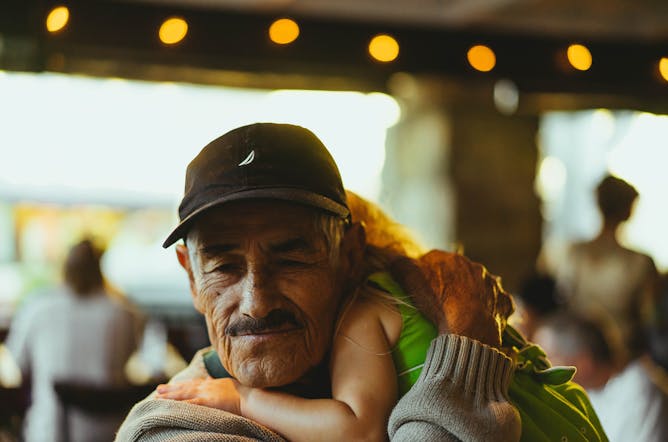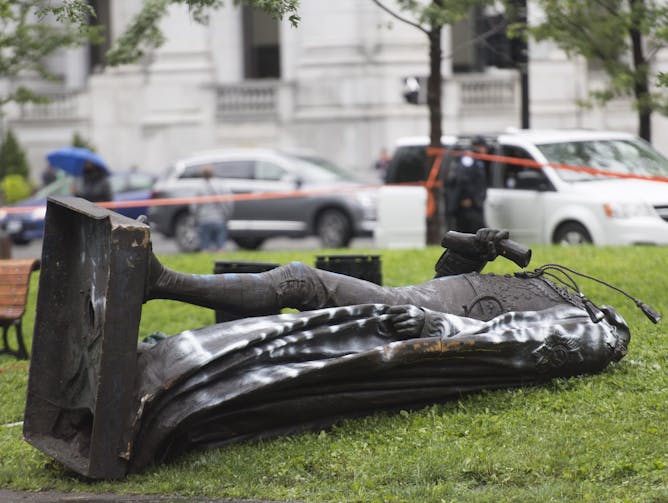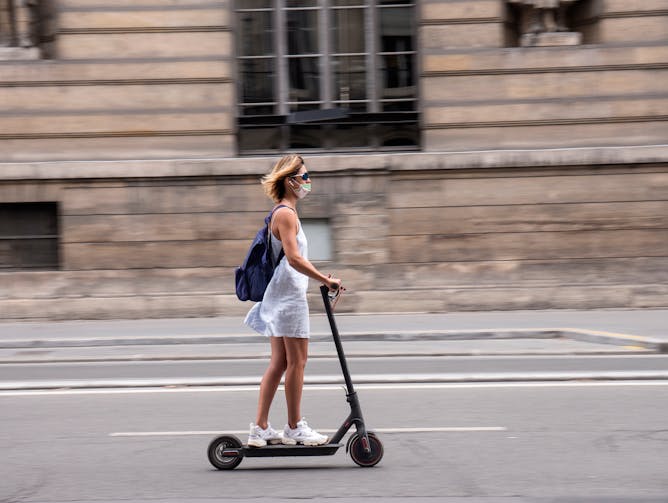|
It’s easy to notice that the names for groups of people sharing a common skin colour, ethnicity, gender identity, disability or racial background change frequently — and how their grammar also changes.
Which letters should be included along with the order in which they should appear may be debated (BIPOC vs. IBPOC, LGBTQ+ vs. LGBTQIA vs. LGBTQ2S+). Capitalization may vary (black vs. Black, white vs. White, deaf vs. Deaf). And some of these new terms open up grammatical questions: should I ask my non-binary friend to introduce themselves or themself?
Today in The Conversation Canada, Jila Ghomeshi from the University of Manitoba answers who is the person or committee invested with the power to decide which terms are the right ones and which should be put to rest, and who is the arbiter of contentious language.
Regards,
|

Who is the person or committee invested with the power to decide which terms are the right ones and which should be put to rest?
(Unsplash/Jason Leung)
Jila Ghomeshi, University of Manitoba
Who are the arbiters of contentious language? The answer, in the case of terms that refer to people, is the people to whom those terms refer.
|

Profits have no place in the care of our children and aging parents and grandparents.
(OC Gonzalez/Unsplash)
Susan Prentice, University of Manitoba; Pat Armstrong, York University, Canada
The need for more child-care and elder-care spots is growing, but the COVID-19 pandemic proves that for-profit facilities are not the answer.
|

Sales increases for self-published titles in the pandemic is likely related to the accessibility of eBooks during bookstore and library closures.
(Shutterstock)
Elizaveta Poliakova, York University, Canada
Publishing houses face strain, and in some cases, closure, as a result of the coronavirus pandemic. Authors are looking for alternative ways to get their work to readers.
|

Protestors toppled a statue of Sir John A. Macdonald after a demonstration in Montréal on Aug. 29, 2020.
(THE CANADIAN PRESS/Graham Hughes)
Stéphane G. Lévesque, L’Université d’Ottawa/University of Ottawa
Contending with Canada's history means acknowledging different versions of the truth. Toppling statues won't resolve the wrongs of the past — education is an important part of democracy and inclusion.
|

For generations, queer people have demonstrated their adaptability to navigate life outside the status quo with supportive communities.
(Shutterstock)
David J Kinitz, University of Toronto; Alan Santinele Martino, Carleton University
Queer people have learned to build and rely on "chosen families." Finding ways to creatively bolster and expand our networks of care takes on renewed importance in the pandemic.
|

Le sans ancrage essuie quelques difficultés et gagnera probablement en acceptabilité de la part des pouvoirs publics et des citoyens. Mais dans sa forme actuelle, force est de constater qu’il ne répond que de façon incomplète aux exigences d’une mobilité durable pour tous.
Shutterstock
Axel Chiche, Université du Québec à Montréal (UQAM); Ugo Lachapelle, Université du Québec à Montréal (UQAM)
Dans sa forme actuelle, force est de constater que le sans ancrage ne répond que de façon incomplète aux exigences d’une mobilité durable pour tous.
|

Le président biélorusse Alexandre Loukachenko, sans masque, visite un hôpital pour les patients atteints de la Covid-19, à Minsk, le 27 novembre 2020.
Andrei Stasevich\TASS via Getty Images
Sumit Ganguly, Indiana University; Dorothy Chin, University of California, Los Angeles; Elizabeth J King, University of Michigan; Elize Massard da Fonseca, Fundação Getulio Vargas; Salvador Vázquez del Mercado, Centro de Investigación y Docencia Económicas; Scott L. Greer, University of Michigan
La pandémie n’est pas terminée, mais ces dirigeants sont déjà entrés dans l’histoire pour avoir échoué à combattre efficacement la Covid-19. Certains d’entre eux n’ont même pas vraiment essayé.
|
Environment + Energy
|
-
Mojtaba Sadegh, Boise State University; John Abatzoglou, University of California, Merced; Mohammad Reza Alizadeh, McGill University
As the risk of fires rises in areas once considered too wet to burn, it creates hazards for mountain communities and for downstream water supplies.
|
|
Oceans 21
|
-
Ben Belton, Michigan State University
Shakuntala Haraksingh Thilsted, a native of Trinidad and Tobago, is the winner of the 2021 World Food Prize for her work identifying small fish as valuable nutrition sources for developing countries.
|
|
Politics
|
-
Jennifer Mathers, Aberystwyth University
Fears grow for the young dissident journalist after he was taken off a Ryanair flight.
|
|